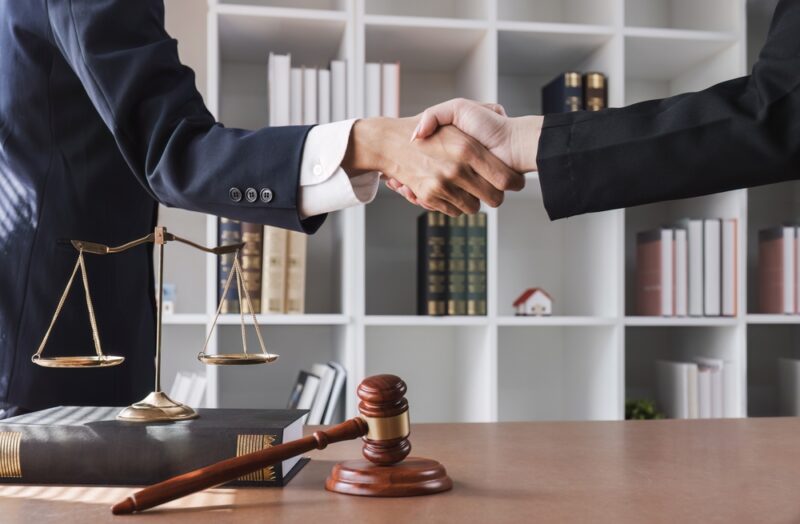Choosing the right commercial litigation lawyer is paramount for businesses facing legal disputes. These disputes can pose substantial risks, including hefty financial repercussions, damage to reputation, and interruptions to daily operations.
An adept lawyer plays a critical role in navigating through these tumultuous waters, crafting strategies to minimize risks and safeguarding the company’s interests.
This comprehensive guide aims to equip you with the knowledge to meticulously select a lawyer who can adeptly represent your business’s interests, ensuring you are well-prepared to face any legal challenges head-on.
Assess Your Needs

The initial step in the selection process involves a thorough assessment of the specific legal challenges your business is confronting. This could range from disputes over contracts, and issues surrounding intellectual property rights, to matters of regulatory compliance.
An accurate understanding of the nature of your legal problems is crucial. It enables you to search for a lawyer with the exact expertise and experience necessary to handle your case.
The complexity, scope, and specific legal intricacies of your situation will guide you in determining the precise qualifications and level of experience you should seek in a commercial litigation lawyer.
Research Potential Lawyers
Embark on your search by compiling a list of potential lawyers. Leveraging online resources, such as legal directories, professional websites, and the websites of bar associations, is an effective starting point.
Additionally, personal recommendations from colleagues, industry peers, and other trusted sources can prove invaluable. This blend of online research and personal recommendations should provide you with a comprehensive list of qualified professionals specializing in commercial litigation.
This step is crucial as it lays the foundation for finding a lawyer who not only has the requisite legal expertise but also possesses a deep understanding of the nuances of commercial law relevant to your case. If you do a good job in this domain the path should lead you towards Summit Law.
Evaluate Experience and Expertise

Carefully evaluate the experience and track record of each lawyer on your list, with a particular focus on their success in handling cases similar to yours. It is essential to prioritize lawyers who specialize in commercial law and have a proven track record in dealing with legal issues akin to those you are facing.
The expertise and experience of your chosen lawyer can have a profound impact on the outcome of your case. This evaluation process is one of the most vital steps, as it ensures that you select a lawyer who is well-equipped to navigate the complexities of commercial litigation, offering the best possible defense for your business interests.
Check Credentials and Reputation
Verify the credentials, qualifications, and professional standing of the lawyers you are considering. This includes confirming their education, bar association memberships, and any additional certifications relevant to commercial litigation. Beyond their formal qualifications, delve into their reputation within the legal community and among past clients.
Reviews, testimonials, and feedback from previous clients can provide insight into their professionalism, ethical standards, and client satisfaction levels. A lawyer’s reputation for excellence, integrity, and successful outcomes is a strong indicator of their ability to handle your case effectively.
Schedule Consultations

Arrange consultations with a few selected lawyers to discuss your case in detail and evaluate their suitability. These meetings are an opportunity to present your legal issues and gauge the lawyer’s understanding, approach, and willingness to address your concerns.
Prepare a list of questions in advance to assess their expertise, experience, and strategy for handling your case. The consultation is not only about evaluating their legal acumen but also about discerning their communication skills and commitment to client service.
Discuss Fees and Billing
Inquire about the lawyer’s fee structure, including hourly rates, retainer fees, and any alternative billing arrangements. Understanding the financial aspect of your legal representation upfront is essential to avoid surprises.
Discuss potential additional costs or expenses that may arise during the course of your case. A transparent conversation about fees and billing practices will help you budget for your legal expenses and ensure that the financial arrangements align with your expectations and capabilities.
Evaluate Communication and Compatibility

The lawyer’s communication style and responsiveness are critical factors to consider. During your consultation, pay attention to how they explain legal concepts, their approach to client communication, and their availability to address your concerns.
Compatibility with the lawyer’s personality and working style is essential for a successful collaboration. You need a lawyer who not only understands your legal issues but also values your input and communicates effectively throughout your case.
Review the Engagement Agreement
Before finalizing your decision, carefully review the engagement agreement provided by the lawyer. This document should clearly outline the terms of your relationship, including the scope of services, fee structure, and responsibilities of both parties.
Pay close attention to any clauses or terms that seem ambiguous or unclear, and do not hesitate to ask for clarification. Understanding every aspect of the agreement is crucial before you commit to working with a particular lawyer.
Monitor Progress and Communication

Once you have engaged a lawyer, maintain open and regular communication throughout the duration of your case. It is important to stay informed about the progress of your case, any new developments, and the strategies being employed.
Regular updates and prompt responses to your inquiries are indicative of a lawyer’s dedication to your case. Address any concerns or questions as they arise to ensure that your case is being handled in accordance with your expectations.
Seek Regular Updates
Actively request regular updates from your lawyer regarding the status of your case, including any strategic changes, upcoming deadlines, and court dates. Staying well-informed allows you to make timely decisions and provides reassurance that your case is progressing as planned.
An effective lawyer will ensure that you are apprised of any significant developments and that you understand the implications of these changes on your case.
Reflect and Adjust as Necessary

Periodically reflect on the effectiveness of your chosen lawyer and the progress of your case. If your expectations are not being met, or if you have concerns about the direction of your case, it may be necessary to reconsider your legal representation.
Flexibility and openness to adjust your strategy or explore alternative legal options are essential for achieving the best possible outcome for your business.
Conclusion
Selecting the right commercial litigation lawyer is a strategic decision that can significantly impact the success of your legal endeavors.
By following these ten essential steps, you can ensure that you choose a lawyer who is not only competent in commercial litigation but also aligned with your business’s values and legal objectives.
Related Posts:















